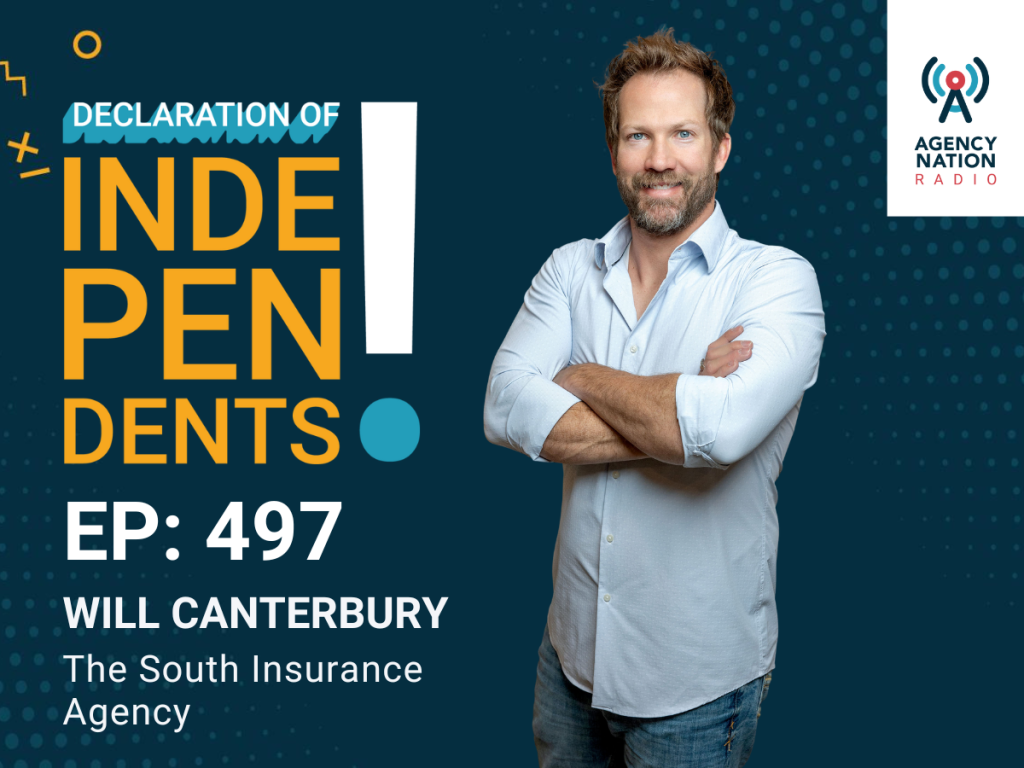6 Ways Financial Partnering Can Help Independent Agencies Thrive

By: David Tralka
Twenty years ago, traditional banks weren’t a reliable source of capital to finance agency growth and perpetuation. Many institutions just didn’t—and still don’t—understand the agency model. Insurance companies provided some lending, but it was spotty at best. As a result, agencies were left with few viable options besides private capital for financing.
That gave rise to InsurBanc: “The agent’s bank.” Formed by the Big “I” with the backing of W.R. Berkley Company, InsurBanc was created to provide the capital agents require to compete, grow and perpetuate their firms.
With InsurBanc’s 20th anniversary in 2021, it’s as important as ever to build a culture emulating that of the independent agency: A financial partner that truly understands agency value—cash flow, income and credit needs—and tailors solutions like an agent tailors solutions for their clients. One-size-fits-all does not work in insurance—or lending.
Recent history has shown what outside financing can do for an agency’s growth. But even though the message remains the same, educating agency principals about capital and why it’s so important is too. Here are six ways partnering with an independent agency bank can take your agency to the next level:
1) Staying Independent
Agency merger & acquisition activity continues at a fast clip. And while there is huge demand from third-party acquirers, many agency owners want to keep their firm independent through an internal perpetuation plan. However, transferring control of the company to a new generation is often easier said than done.
For example, the owners of a nearly 200-year-old firm wished to stay independent, but two of their partners were retiring. The agency wasn’t sure it could afford to buy out both partners at the same time or if it could make the acquisition price attractive enough that an internal buyout would be preferable to the offer of a large national brokerage. The owners knew selling to a larger firm or broker would maximize the retiring partners’ earnings, but they wanted to explore options to stay independent.
We worked with them to create a perpetuation plan and financing for the buyouts. We analyze an agency’s income potential and long-term viability to help owners assess the value of their agency and determine a fair price. We also advise on the appropriate structure for a perpetuation, from personal buyouts to stock redemptions. In the end, that agency was able to remain independent.
2) Succession Plans
It was true 20 years ago and it’s true today: Attracting talented young producers to this industry and preparing them for ownership is an ongoing challenge for agency owners. Banks should play an important role in business continuity by providing the capital to fund a succession plan.
Well-crafted financing can make amazing things happen with valuable, long-term employees. Some 28 years after joining an agency as a customer service representative, one of our clients had an opportunity to purchase the firm from the retiring owner. She had gone from customer service representative to president and, ultimately, owner. We provided the initial loan—and after paying it off, she again asked us to finance the purchase of a building for the agency’s offices, which after a remodel has become a showcase for the firm.
Agency valuation is a specialty area that few financial institutions have expertise in. It’s certainly important to work with a firm that knows this area well when you’re thinking about acquiring another agency, but it may matter even more when you’re ready to exit the business and need to structure a deal that maximizes your profit while providing the next owner a means to acquire your agency.
3) Inorganic Growth
Organic growth is an excellent way to build equity in your firm, but there are times when it makes sense to grow inorganically. Examples include purchasing a book of business, acquiring another agency, adding a producer, investing in new technology, or upgrading your customer service and marketing. For a well-run agency, outside financing can be beneficial.
Consider a health care-focused agency that recognized a need to diversify and increase its personal lines business. It wanted to acquire a nearby agency with a recognized and seasoned property-casualty book of business that also provided excellent cross-selling opportunities. But the agency needed a financial partner that would view the acquisition as an attractive business opportunity.
4) Perpetuation Options
Even if you aren’t ready to sell your agency now, eventually it will have to change hands. Many agency owners haven’t given thought to when or how they’ll perpetuate. These plans take time to unfold—five to 10 years in most cases—and with so many principals nearing retirement, they need to act sooner rather than later to develop a sound, written, well-funded perpetuation plan that establishes agency value and names buyers and sellers.
Sometimes, agency owners need to move quickly. One of our clients had prepared a self-funded perpetuation plan, but the timeline had to be accelerated when his health deteriorated. At that point, he decided that it would be best to involve a bank in the funding. After talking to several banks that didn’t understand the agency’s business or how to value it, the owner approached us for the transaction. We were able to act quickly and help develop and fund a revised plan to benefit all parties.
Other times, agency owners experience seller’s remorse. They want to stay in the business and regret giving up control too soon. There’s an alternative. In a staged perpetuation backed with outside lending, you sell part of your agency now, but you still own it. Down the road, when you’re ready to retire, you sell the rest. You can have your cake and eat it too.
5) Launching a Firm
Over the years, producers who successfully cut their sales teeth under the wing of an agency owner have dreamed of owning a firm. But they face a challenge: Banks are leery of lending to an unknown risk.
Take the top producer at a large agency who built a book of business from scratch that is now valued at $1 million. She wanted to start her own agency but needed the capital to purchase the business. InsurBanc understood the commitment of a producer who could grow a book to $1 million. This producer’s niche is in commercial insurance bonds in the construction, habitation and restaurant industries, and her contacts were extensive. A bank that understands the value of a strong producer is more willing to invest in their future and provide working capital than the average bank.
Financing the emerging agency owner is key to the future health of the independent agency channel. Many new agencies and brokerages are building strong brands. They are technologically savvy, culturally tight, aggressive and successful.
6) Strategy Changes
Independent agencies certainly appreciate the value of a long-term client relationship built around trust. Their commercial clients can pivot, sometimes entering unchartered waters, and they need an insurance partner to back them up. Agents, too, can pivot and they need a lender that already knows them.
The fifth-generation owners of an agency established in 1869 wanted to rethink their acquisition strategy in a difficult and changing economic environment. They were looking for ways to refinance their debt on more favorable terms with flexible cash management and continue to grow through acquisitions.
The principals were driven to stay on track with their ultimate strategy of growth but needed the financial expertise to get there. InsurBanc loaned the capital and has remained a loyal financial partner, providing financing for subsequent agency acquisitions and the purchase of a building.
In these competitive and uncertain times, having a strong lending partner can make all the difference in the world. InsurBanc is proud of our beginnings and the collaborative relationship we’ve forged with the Big “I” and its members.
What Kind of Bank Do You Need?
The insight and planning that comes from a long-term relationship with a bank can be invaluable—especially a bank that understands your goals and the complexities of your business and can help you identify and pursue new opportunities.
Your bank should be able to provide a wealth of financial and operational advice. This includes analysis of financial statements and other key business metrics, including important industry trends, benchmarking data, information about the latest deal structures and capitalizations, and suggestions for other professionals you might retain such as an attorney, certified public accountant or investment broker.
Your bank should have the tools an agency needs to analyze income and expenses and forecast future cash needs. Accurate and timely financial reporting will allow you to make more informed cash-management decisions, improve efficiency and maximize your revenue.
Also, are you paying attention to quality of earning (QOE)? This is an important measurement of your agency’s sustained earning power. It’s also an indicator buyers look at closely when they make an offer.
All the moving pieces in your agency can contribute to building value, and you need a bank that understands this. A bank should know your business and your borrowing needs. A lender should be able to analyze and recommend growth opportunities. It should understand the strategic significance of acquiring new business, as well as the urgency often required in putting together a deal.
A long-term banking relationship can have practical benefits, including greater convenience, higher levels of service, better rates and lower fees. Find a bank that truly wants to be your ally and has your best interests in mind.
David Tralka is the president and CEO of InsurBanc, a division of Connecticut Community Bank N.A. He is responsible for keeping the bank focused on being an innovative provider of financial products and services for the independent agency community. An expert on agency mergers & acquisitions, agency perpetuation and financing, he has presented at numerous venues nationwide.










